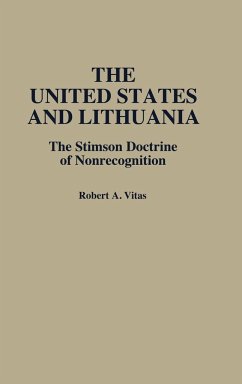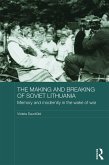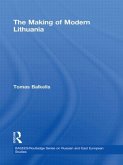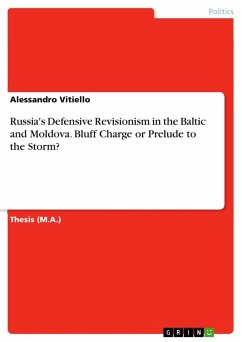This is the first systematic study of the Stimson Doctrine of Nonrecognition as applied to Lithuania and the other Baltic States. The book blends political history, U.S. public policy formulation and implementation, and international law to present a complete picture of the development of the Nonrecognition Policy since the Soviet occupation of Lithuania in 1940. The book presents the strengths and practical weaknesses of the policy in the context of diplomacy and international relations, as well as the difficulties encountered by Washington in preserving it. Vitas argues that the Nonrecognition Policy has been an effective one in terms of the goals and intentions of the Roosevelt and subsequent administrations. Following the introduction, the book covers the prelude to occupation and the incorporation of Lithuania into the USSR. The next chapter covers the Stimson Doctrine, nonrecognition, and aspects of international law. The fourth chapter focuses on the genesis of the U.S. Nonrecognition Policy. Chapter five covers the political and legal effects of Nonrecognition and offers a detailed look at the status of the Lithuanian government during this period. Next, the book covers the wartime politics and discusses the Baltic and implications for US-USSR relations. After several case studies that feature the postwar Baltic repatriation and the Simas Kudirka Incident, the concluding chapter looks at Lithuanian diplomatic continuity and its political future in the 1990s. This book should be of interest to academics engaged in research in international law, public policy, and Soviet-East European studies.
Bitte wählen Sie Ihr Anliegen aus.
Rechnungen
Retourenschein anfordern
Bestellstatus
Storno








